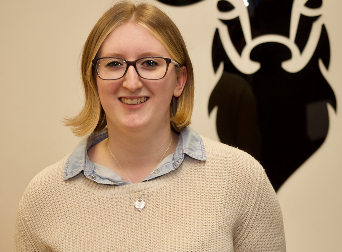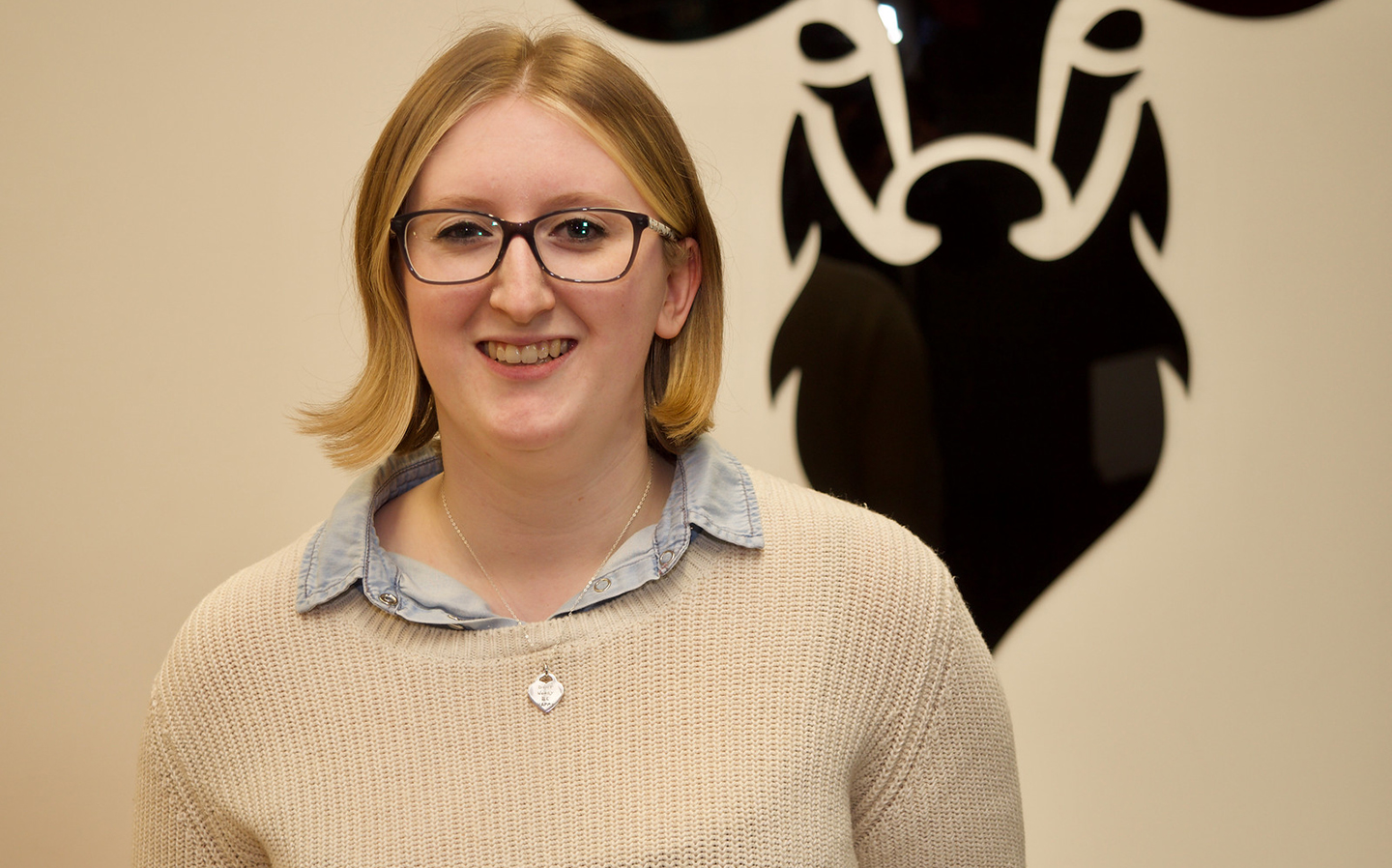Sign up for updates
Interested in studying at the University of Hertfordshire and want to sign up to our mailing list to learn more about our facilities, living in the UK and student life? Use the form below and our team will also keep you informed of key updates such as events near you, applications opening and more!
BA (Hons) History and English Language
Key information
-
Typical offer:
Entry requirements -
Fees: See below
Full details -
UCAS code: V1Q1
-
Institute code: H36
-
Study abroad option
-
Work placement option
Find out more
Why choose this course?
- Join our award-winning Oral History Team (featured on BBC R4)
- Focus on your interests - All History modules optional after 1st year
- Optional forensic and clinical linguistics modules
Ever wondered how the past shapes the current world? Or why animals can’t talk but humans can? At Herts, you’ll explore this and more in our flexible joint programme. You’ll learn how people learn (or don’t learn) from past events. You’ll start seeing patterns and parallels between the past and present. Maybe even the future.
English language allows you to explore the foundations of language. The specialist optional modules include psycholinguistics, forensic linguistics, and clinical linguistics. You can investigate human communication, the psychology behind language and the use of language in different settings. How is language used to identify criminals? History will teach you the links between past and present. Does history really repeat itself?
Our English Language graduates have gone on to work within various fields, including psychology, speech and language therapy, marketing, and communication. Our History graduates have obtained jobs in research, marketing, data analysis and more. You’ll learn to be critical, identify reliable primary and secondary sources and evaluate data effectively. These are all highly sought-after skills by employers and educational institutions alike.
English Language
You’ll learn from lecturers who specialise in a wide variety of linguistic disciplines. This includes psycholinguistics, bilingualism, language, and gender. You’ll learn about the study of speech sounds, known as phonetics, alongside speech production and syntax, the building blocks of human communication. In addition, you’ll analyse real-life data, transcripts, and texts to understand how the way we talk shapes the world around us. You can use the eye-tracking suite to learn about how the brain processes language. Where do people look when they are reading? Or when engaged in a conversation?
In forensic linguistics, you’ll investigate how language is used to solve crimes. You’ll analyse speech sounds and voice patterns of suspected offenders. Another new and exciting field is sociolinguistics. You’ll explore how people use language differently depending on the context they are in. How does gender affect language use? Can we derive someone’s gender from just reading their texts? Learn about how people make judgments on people’s personalities based solely on their accents and dialects.
History
We are lucky to be situated in is one of the most historic counties of England- Hertfordshire. It’s known for its rich past, museums and market towns steeped in history. St Albans, where the traditional hot cross buns are rumoured to have originated, is only a few miles away. You’ll be able to visit the St Albans Cathedral and the Hertfordshire Archives and Local Studies (HALS), which are only a short drive away in Hertford.
Herts is one of the few universities in the UK with an active Oral History team. Oral history is all about recording people’s stories before they are lost forever. This can be on topical issues, such as immigration or religion. You can even set up your very own project. For example, we've run projects with Watford and Stevenage Football Clubs, local charities, and groups from the wider community, on projects ranging from migrant experiences to the de Havilland Aircraft Company. This optional co-curricular is great for your CV. It helps you develop new skills that employers value. In 2018, some of our students produced interviews for a BBC Radio 4 programme. It was commended in the Public History Prize awards by the Royal Historical Society.
History was ranked in the top 25% of UK universities for research impact. (Research Excellence Framework, 2021).
What's the course about?
In your first year, you’ll learn the foundations of language. You’ll study phonetics, syntax and the building blocks that make up language. You can choose to explore language in societal groups, humans and even animals! In History, you’ll, explore Africa from the 15th to the 19th century, trade between 1600-2000 and the Heritage Industry in England. You can also choose to study 20th Century American culture, which covers music, sport, and entertainment, including early film.
In your second year, you can take modules on English language teaching, psycholinguistics, forensic linguistics and more. Learn how language is processed in the brain, how children learn language, and learn more about phonetics, phonology, and syntax. All your History modules are optional as well. Explore family life in the 18th century or learn how to make a historical documentary.
Work placement/study abroad option: Between your second and final year, you’ll have the option to study abroad or do a work placement for up to a year. Not only will this give you an amazing experience to talk about but will also give your CV a boost. If you’d rather go straight to your final year, that’s fine too. You’ll decide in your second year with us, so there is still plenty of time to think about this.
In your final year, you can choose from a wide range of modules, from Child Language and Communication to Pacific Histories which explores colonisation, conflict and connections. You also have the opportunity to select to do a final year project of your choosing in either History or English language.
For a full list of modules, see the section under ‘What will I study?’
Your main campus is College Lane
This is where the creative arts, science and health-related subjects are based. This means you’ll share the campus with future nurses, scientists, artists and more. You can use the common rooms to relax with friends, work out in the 24-hour gym or have a drink in our on-campus pub or cafes. We also have restaurants for you to eat in or grab something on the go. Our Learning Resources Centres are open 24/7, which means you can study whenever suits you best. Want to pop over to the other campus? You can take the free shuttle bus or walk there in just 15 minutes.
What will I study?
Degree programmes are structured into levels, 4, 5 and 6. These correspond to your first, second and third/final year of study. Below you can see what modules you’ll be studying in each.
Check out our student blogs

Student Blogs
Jasmine - Week at a glance
My week at a glance
History lessons are taught between a mixture of lectures and seminars for the first two years (Level four and five). A typical week would consist of one-hour lectures per module followed by a seminar, which could either be immediately after or on a different day. The seminars consist of smaller groups of people where you discuss both the lecture’s information and the assigned reading. These can be debates, presentations, or simple discussions. So, despite only having contact time for four hours per week, there are independent reading and assignments which need to be completed.
I start my week by completing the required reading, making notes of anything I do not understand so that I can ask my lecturer. After completing the weekly reading, I will work on the assignments. Even though they are mostly due at the end of the semester it is a good idea to work on them throughout, so you do not leave them until last minute.
I participated in active students, which is free for all Hertfordshire students. Here I would attend yoga classes, but there is a wide range of fitness and wellbeing events that take place. I also enjoyed badminton, as you could either go alone or with a group of friends. It is also a good idea to join society as it not only boosts your CV, but it is a way to meet likeminded people and develop friendships.
I also had a part-time job which I would do alongside studying. This means that planning is vital as you want to be on top of your workload to ensure you have enough time to complete it to the best of your ability. It worked well with the history course as most of the work was independent, meaning I could work around my other commitments.
It is important that you allow downtime alongside work as it recharges you and you can produce better quality work. It also prevents you from being overworked and ensures that you enjoy the course.

Student Blogs
Jasmine - Things you should know
Things you need to know before studying History at Herts
Preparation is key! Once you know what modules you are taking it is useful to do some research prior so that you can enter the module with basic knowledge. This makes studying it that much easier and you are less likely to be left behind. It prevents your workload from building up and be unbearable. History is a very independent course and will consist of quite a bit of reading, so you need to organise your time efficiently. Leave enough time to work on your assignments from the start so that if you have any issues you can get them sorted in time.
Complete the required reading as that way you will be able to contribute to the seminar discussions. Furthermore, if you stumble across words you are not familiar with or useful words it’s a good idea to make a keyword list and ask your lecturer if you are unsure of a specific concept. When completing the reading highlight important themes and produce short notes. Put them in your own words and as simple as possible, as it makes them easier to understand in the future. It is usually best to find a spot away from distractions and turn your phone off. Moreover, take regular short breaks, to allow what you have read to sink in.
Do not be afraid to talk to the lecturers, they are lovely and always willing to answer questions, especially on assignments. I found that discussing my drafts with lecturers before completing them allowed me to get high grades as they were able to point me in the right direction. They are there for you, so make sure you use them as much as possible.
Most importantly make sure you are having fun and enjoy yourself. Allow downtime so that you can recover and have the right amount of work/life balance.

Student Blogs
Jasmine - Why I love History
What I love most about my course
I loved that with history you could do as much or little as you wanted. Alongside completing the required tasks, lecturers indicated further reading sources if you wanted to. That meant to if there was a part of the subject that interested you, it was possible for you to explore it further. Moreover, most of my lecturers would ask at the start of the semester what we wanted to get from the course. This meant if there were specific areas that we were most fascinated with or wanted to learn, they aimed to include that into the module.
I also loved that there is a range of topics that are covered, and the ability to choose which ones you wanted. I minored in public history which meant that instead of the typical essay assignments I created a documentary for one module. Another module was work experience, so I got to volunteer. We also went on trips to the archives and Bayfordbury campus which offered alternative styles of learning and experiencing history outside the classroom. This was exciting as I got to try new things, which I would not have thought to do.
The humanities department was extremely inclusive. They have an Instagram and post regular events like rollerblading and film nights which allowed you to socialise with your lecturers and peers. The staff were all friendly and welcoming and always happy to help with any issues. I felt that they truly wanted me to succeed, and they had my back. The events helped to create a work/live balance.
Due to the independent nature of studying history, I was able to adapt to studying around my lifestyle. Because the contact time was only eight hours per week, I was able to work alongside studying. I was also able to study on the train journey or at home when I returned to visit family, meaning that I was not left behind on my workload.

Alumni Stories
Eleanor Pilcher
Meet Eleanor Pilcher who since graduating in 2016 has taken the publishing industry by storm. Eleanor currently works as a Marketing Manager at Avon, HarperCollins Publisher.
Read more stories Find out more about this course| Current job role | Marketing Manager |
|---|---|
| Year of graduation | 2016 |
| Course of study | BA (Hons) History and Creative Writing |

University experience and employability
Eleanor is a keen writer with great creative ambitions. During her degree she undertook a six-month internship at a literary agency in her final academic year. In 2016, shortly after her studies, Eleanor landed a placement at Penguin before getting a job in publishing recruitment. After developing her skills within the industry and amassing and impressive amount of knowledge and experience, Eleanor began her current role at HarperCollins Publishers.
Eleanor's degree encompassed a broad spectrum of critical, analytical and evaluative skills and helped shape her as a writer. Throughout her studies she had been writing a novel, which she submitted to literary agencies after being encouraged by her tutor to do so. It was Eleanor's passion for writing that uncovered her interest in working for a literary agency. Due to the fantastic lecturers on her course and the invaluable industry networks available to students, Eleanor managed to secure impressive opportunities in her chosen industry that have informed her career.
Sher recognises the impact the University has had on getting her to where she is today. 'For me the advice and feedback I received on both my History essays and Creative Writing finals was incredibly useful to my academic and professional development. I learnt to take criticism and to harness it and also write more because of it.'
Ambitions for the future
Eleanor has established herself in her chosen industry yet still has ambition to continue pursuing new goals. On her hopes for the future, she says: 'I hope to run a marketing department within a publishing company, possibly the one I'm at now. I hope to publish a novel and continue my freelance writing and public speaking on the side.'

Alumni Stories
Alex Olney
Meet Alex Olney who has applied his skills in communication to the gaming industry. He is currently a Senior Video Producer at Nintendo Life.
Read more stories Find out more about this course| Current job role | Senior Video Producer |
|---|---|
| Year of graduation | 2015 |
| Course of study | BA(Hons) English Language and Communication |

University experience
While not his first choice of university, Alex is grateful that he applied to the University of Hertfordshire through Clearing as whilst at the University he discovered and explored his passion for everything linguistic. This passion has had a profound impact on his life since graduating.
He says, ‘Studying a language gave me confidence and a deeper understanding of human and non-human communication and has allowed me to create a distinct idiolect that identifies me as a creator and, more importantly, entertains tens of thousands of people every day.’
He credits his success to the support he received from his lecturers who encouraged him throughout his studies: ‘The lecturers were not only well informed about the subject matter but had a genuine passion for language.’ He states that they pushed him to explore languages so much so that ‘it became a driving force in my everyday life.’
Alex also believes that the transferable skills he learnt while at the University have helped him throughout his professional life including time management. He states that he learnt effective time management skills to ensure that he never leaves projects and deadlines to the last minute and plans out in advance what is required.
The future
Alex really enjoys his current role at Nintendo Life as he likes the hands on nature of producing content but would eventually like to manage and become a head of the video editing department.

